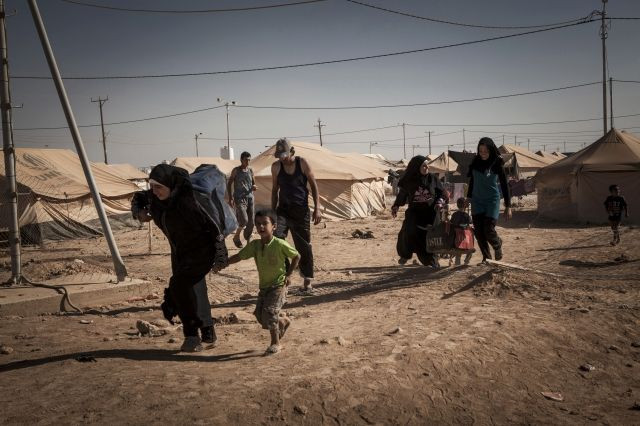UK Gets Serious About Syria, Expects US To Follow Suit Following Obama Victory
Analysis

British Prime Minster David Cameron is doubling down on Syria -- and much of the West, including the United States, may soon follow suit.
During a visit to the Middle East this week, Cameron met with Syrian refugees whose lives have been turned upside down by the bloody conflict in their home country; he was moved to criticize the international community for its slow response to the crisis.
He said the UK would work directly with Syrian rebel fighters and commanders -- an abrupt change from the previous policy of working only with opposition groups in exile. Those groups have been plagued by infighting and are often criticized for being out of touch with events on the ground in Syria.
Cameron is calling on newly reelected U.S. President Barack Obama to join him in these new efforts to speed up the Syrian peace process.
The Syrian revolt began in March of last year, when regime forces under President Bashar al-Assad began responding to protests with overwhelming force. More than 19 months later, anti-regime forces have coalesced -- very loosely -- under the banner of the Free Syrian Army, whose fighters engage in fierce territorial battles with the Syrian Armed Forces on a daily basis.
More than 36,000 people have lost their lives so far, according to the London-based Syrian Observatory for Human rights. Many are civilians. The United Nations estimates that half a million Syrians have already fled the country.
Much of the international community has called for Assad to step down, but the West has stopped short of military intervention.
On Wednesday, Cameron visited the Zaatari refugee camp in Jordan, just eight miles south of the Syrian border. There, more than 30,000 people who have fled the wrath of their own national military are crowded into tight quarters, trying to make the best use of limited resources.
“I wanted to hear for myself the stories of people who have been bombed and shot and blasted out of their homes in Syria by a deeply illegitimate and unpleasant regime that is raining down death and destruction on its own people," said Cameron, according to the BBC.
Up to 500 people are pouring into Zaatari every day. The camp, which is administered by the United Nations, is struggling to provide its inhabitants with food and shelter. Aid workers project that current funds could run out by early December unless more aid is allocated. Meanwhile, large families are crowding into small tents and the influx of refugees is growing by the day.
"It is truly horrendous to hear those stories and just redoubles my determination that now, with a newly elected American president, we have got to do more to help this part of the world, to help Syria achieve transition," said Cameron.
The Nov. 6 election victory for Obama may indeed herald a new Syrian policy for the American administration, which still refuses to intervene militarily but may join with Britain to step up rebel support.
“With the reelection of Obama, what you have is a strong confidence on the British side that the U.S. administration will be engaged more on Syria from the get-go," said Shashank Joshi, an analyst at the London-based security think tank Royal United Services Institute, to the Associated Press.
The United States is currently the largest donor in terms of humanitarian aid for the Syrian resistance. Cameron pledged on Wednesday to increase British funding for the rebels by about $22 million, bringing the total up to $80 million and making the UK the world’s second-largest donor to the Syrian rebels.
Cameron’s new plan to talk directly with opposition leaders on the ground will be complicated since the movement is so fragmented; disparate groups and militias simply lack the communication infrastructure to closely coordinate their efforts, making it hard to establish a working chain of command.
Even more worrisome is the growing infiltration of the rebel movement by religious extremists, including members of al-Qaeda. Their presence turns the political conflict into an increasingly sectarian one, pitting the mostly Sunni resistance against Alawites, a Shi’a sect of which Assad is a member.
These religious rivalries are now spilling over into neighboring countries like Lebanon and Iraq, inflaming tensions there and threatening the entire region.
Cameron hopes to surmount these very serious obstacles with help from the international community.
“There is an opportunity for Britain, for America, for Saudi Arabia, Jordan and like-minded allies to come together and try to help shape the opposition, outside Syria and inside Syria," Cameron said, according to the Associated Press. "And try to help them achieve their goal, which is our goal of a Syria without Assad."
© Copyright IBTimes 2025. All rights reserved.






















